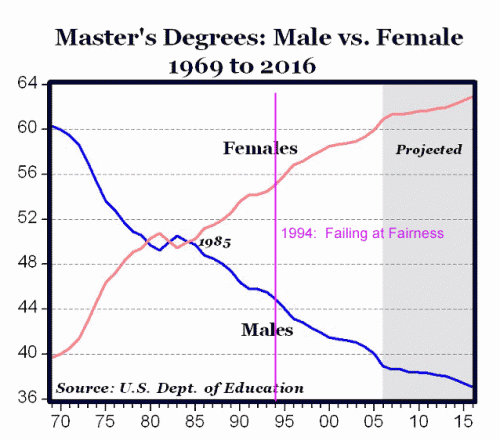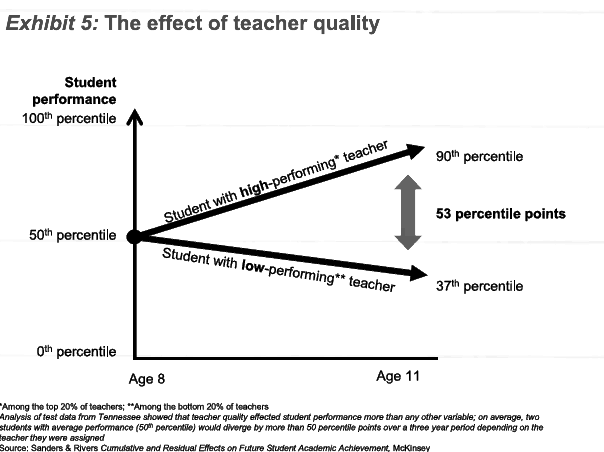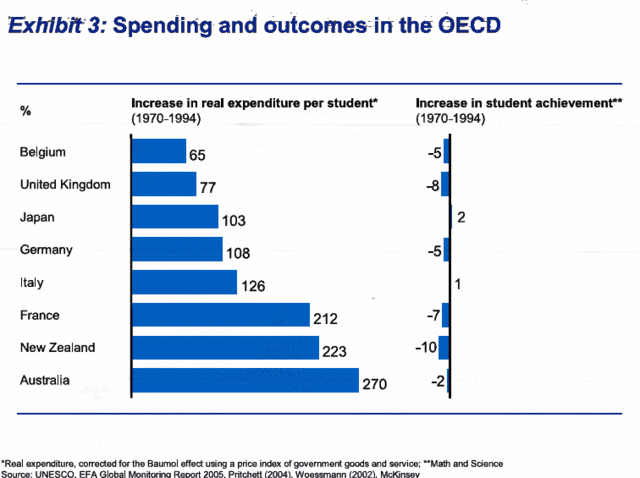Sorry, an unfinished version of this post may have shown up earlier today in your feed readers. This one is the completed version.
For years, America has pushed home ownership. Mortgage interest is one of the few personal expenses that is tax deductible, giving people a strong financial incentive to shift from renting to owning. The Federal Reserve has pursued a policy of keeping interest rates low, further decreasing the cost of owning. Congress passed a myriad of laws and created numerous organizations to help insure that anyone who wanted to buy a home could probably get credit. And every politician, talking head, "expert", etc. who ever got in front of a camera tended to advise everyone regardless of circumstance to try to buy a home. It was not just home ownership, it was The American Dream Of Home Ownership.
Hayek could have told us years ago that there was a fundamental problem with this. In short, 300 million people do not have the same situation and needs and preferences. Take just one example. Does it really make sense to encourage a worker who has a risky income stream (e.g. is vulnerable to layoffs or reduced hours) to buy a house? Leasing provides much greater flexibility to adjust fixed housing costs to changing circumstances. Rent, get your hours reduced, move to a smaller apartment. Buy, get your hours reduced, default, ruin your credit.
The result of our full-court press for home ownership has been rising home ownership rates ... and rising foreclosure and bankruptcy rates.
OK, none of the above is new information. But I was having a conversation with my dad about education, and it struck me that we may be doing the exact same thing with four-year college liberal arts degrees. Every talking head, from talk show hosts to politicians, push kids to go to college. Along with home ownership, the BA is described as a keystone to the American Dream. As with home ownership, we subsidize college education with state-run schools and government loan programs. Just as the government tries to make sure everyone can own a home, they try to make sure every kid can go to college.
Returning to Hayek for a moment, is it really likely that spending four years getting a college liberal arts degree is really the best possible course for every single person? Sure, one can argue that the state offers community colleges and other alternatives to the standard 4-year degree, as do private companies like the University of Phoenix, but I get no sense that politicians and the intelligentsia are really promoting this kind of nuance and choice. I think the message clearly is "four year liberal arts degrees are the goal, everything else is second best."
State university systems that were originally founded to help teach scientific agriculture to farmers wouldn't be caught dead having anything so pedestrian show up in their marketing brochure today. They want to have Nobel prize-winning faculty and be influencing public policy and be doing (and getting grants for) state-of-the-art research. Teaching students a useful trade? That's so ... uncool. Let 'em go to DeVry if they want that.
To some extent this is the result of the takeover of most campuses by the faculty, who wield most of the power nowadays (just ask Neil Rudenstein and Larry Summers at Harvard). Academics are a special class of folks who work as much for, or more for, prestige among their peers as for money. Those incentives are great when you want someone to focus in 120 hours a week on inventing a new type of superconducting material. But in a university, it tilts the entire institution towards a focus on teaching interesting things vs. teaching useful things.
So what has been the result? Well, college has an equivalent to foreclosure and bankruptcy, and it is called drop-out rates. And drop-out rates seem to be rising, at least reading articles anecdotally. The only actual figure I can find was this one:
Just 54 percent of students entering four-year colleges in 1997 had a degree six years later "†and even fewer Hispanics and blacks did, according to some of the latest government figures. After borrowing for school but failing to graduate, many of those students may be worse off than if they had never attended college at all.
I can't prove there is a trend, because I just can't find a good online source, but 46% non-graduation rate strikes me as pretty high. And I would argue that there is, in addition to drop-out rate, a second figure one must consider. How many of those that did graduate could actually do with their degree what they thought they could? How many have a 4-year journalism degree from Michigan and now are working at Starbucks, either by choice or necessity? I call this the soft drop-out rate, the rate of, for lack of a better word, underemployment of one's education investment.
I know that education leaders can all give a nice speech about how important a liberal arts degree is to the health and functioning of the polis, but the fact of the matter is that it is a luxury. It is an incredibly rich world that can have its youth in their strongest and most productive years studying Italian Renaissance poetry or Portuguese literature for four years. And I am not talking about this as a luxury for garbage collectors or auto mechanics, but a luxury even for future white collar workers, who need basic skills like these but are, based on my hiring observations, graduating from college without them:
- A strong sense of personal responsibility and a commitment to excellence in one's work
- The ability to break down a task and organize work towards its completion
- The ability to write a well-organized five paragraph persuasive essay or letter
- The ability to do basic computational math
- The ability to manage personal finances and make smart financial decisions
- The ability to understand basic accounting terms and concepts
- The ability to interact with other people honorably and on the basis of a reasonable level of self-awareness
- A reasonably well-developed sense of ethics and responsibility
To illustrate this further, I want to end with something I have observed over the past year. During the last election, I sensed something in the average 20-something Obama supporter that went beyond just frustration with the incumbent President and the normal level of youthful flirtation with progressivism. I sensed a real anger that somehow some promise had not been kept to these folks. One interpretation of this is that these folks were all promised that a 4-year liberal arts degree would be the guaranteed ticket to success, and that their college degree would make them future leaders and the world would soon tremble at their pronouncements (seriously, just go read the marketing literature from any college). Having gotten this "promise," they suddenly find the world doesn't really hang on the every word of a 22-year-old who has never really been out of the womb, and the employers of the world are not beating the doors down to hire a gender studies major who wrote a really well-received thesis on the role of women in the Paraguayan post-modernist movement.
The Washington Post had a great profile on such folks (though written with far more sympathy than I would have mustered). Here is an example from that article:
Armed with a Georgetown University diploma, Beth Hanley embarked in her 20s on a path hoping to become a professional world-saver. First she worked at nonprofit Bread for the World. Then she taught middle school English in central Africa with the Peace Corps. Finally, to certify her idealism, she graduated last spring with a master's degree in international relations from Johns Hopkins University.
But now the 29-year-old faces a predicament shared by many young strivers in Washington's public interest field. After years of amassing so many achievements, they struggle to find full-time employment with decent pay and realize they might not get exactly what they set out for. Hanley, a think tank temp who dreams of aiding the impoverished and reducing gender discrimination in developing countries, is stuck.
TJIC had some classic comments on this article, and I added some more.
Which brings me finally, of all places, to Michelle Obama. She said something that I thought was relevant to this post:
Despite their Ivy League pedigrees and good salaries, Michelle Obama often says the fact that she and her husband are out of debt is due to sheer luck, because they could not have predicted that his two books would become bestsellers. "It was like, 'Let's put all our money on red!' " she told a crowd at Ohio State University on Friday. "It wasn't a financial plan! We were lucky! And it shouldn't have been based on luck, because we worked hard."
You can see the whole piece here, but she is a pretty clear example of what I am talking about. She got a Princeton liberal arts degree and is just amazed that it did not automatically pay off for her. Somehow, some promise to her has been broken.
Just as she is an example of this phenomenon, she is now endeavoring to be part of the problem, working hard to further confuse the expectations of young people. Her message to them is -- go get an expensive education, but whatever you do don't do anything money-making with it:
"We left corporate America, which is a lot of what we're asking young people to do," she tells the women. "Don't go into corporate America. You know, become teachers. Work for the community. Be social workers. Be a nurse. Those are the careers that we need, and we're encouraging our young people to do that. But if you make that choice, as we did, to move out of the money-making industry into the helping industry, then your salaries respond." Faced with that reality, she adds, "many of our bright stars are going into corporate law or hedge-fund management."
I have no particular problem with people taking on these occupations, as long as I don't have to pay for it. And I am proud that my university, Princeton, is one of the few that has changed its financial aid rules to allow students to graduate debt-free and have the financial flexibility to pursue careers that are not high-paying (making Ms. Obama's comments doubly ironic since this is her alma mater as well).
But the general expectation here is just unrealistic. Here is how I responded previously to Ms. Obama's comments on her education:
This analogy comes to mind: Let's say Fred needs to buy a piece of earth-moving equipment. He has the choice of the $20,000 front-end loader that is more than sufficient to most every day tasks, or the $200,000 behemoth, which might be useful if one were opening a strip mine or building a new Panama Canal but is an overkill for many applications. Fred may lust after the huge monster earth mover, but if he is going to buy it, he better damn well have a big, profitable application for it or he is going to go bankrupt trying to buy it.
So Michelle Obama has a choice of the $20,000 state school undergrad and law degree, which is perfectly serviceable for most applications, or the Princeton/Harvard $200,000 combo, which I can attest will, in the right applications, move a hell of a lot of dirt. She chooses the $200,000 tool, and then later asks for sympathy because all she ever did with it was some backyard gardening and she wonders why she has trouble paying all her debt. Duh. I think the problem here is perfectly obvious to most of us, but instead Obama seeks to blame her problem on some structural flaw in the economy, rather than a poor choice on her part in matching the tool to the job.
And this is what it is all about when you cut through all the misty-eyed Utopian notions about education: For most people, it is a tool. And the tool needs to fit the circumstance, the goals, the capabilities, and the budget. Its time to stop advocating (and subsidizing) and one-size fits all college education program.





